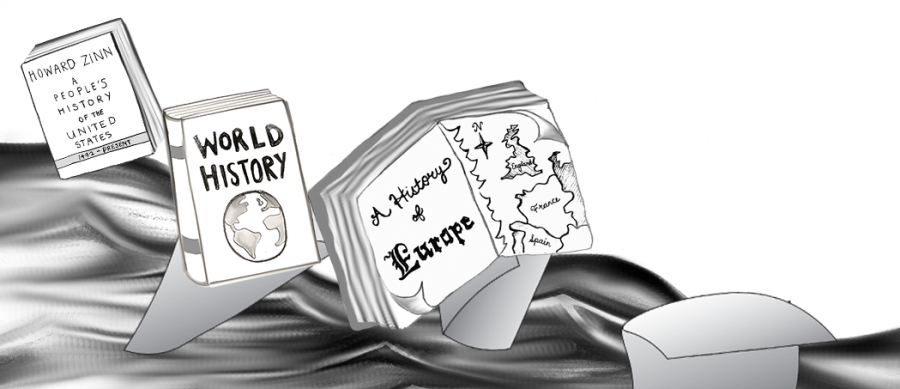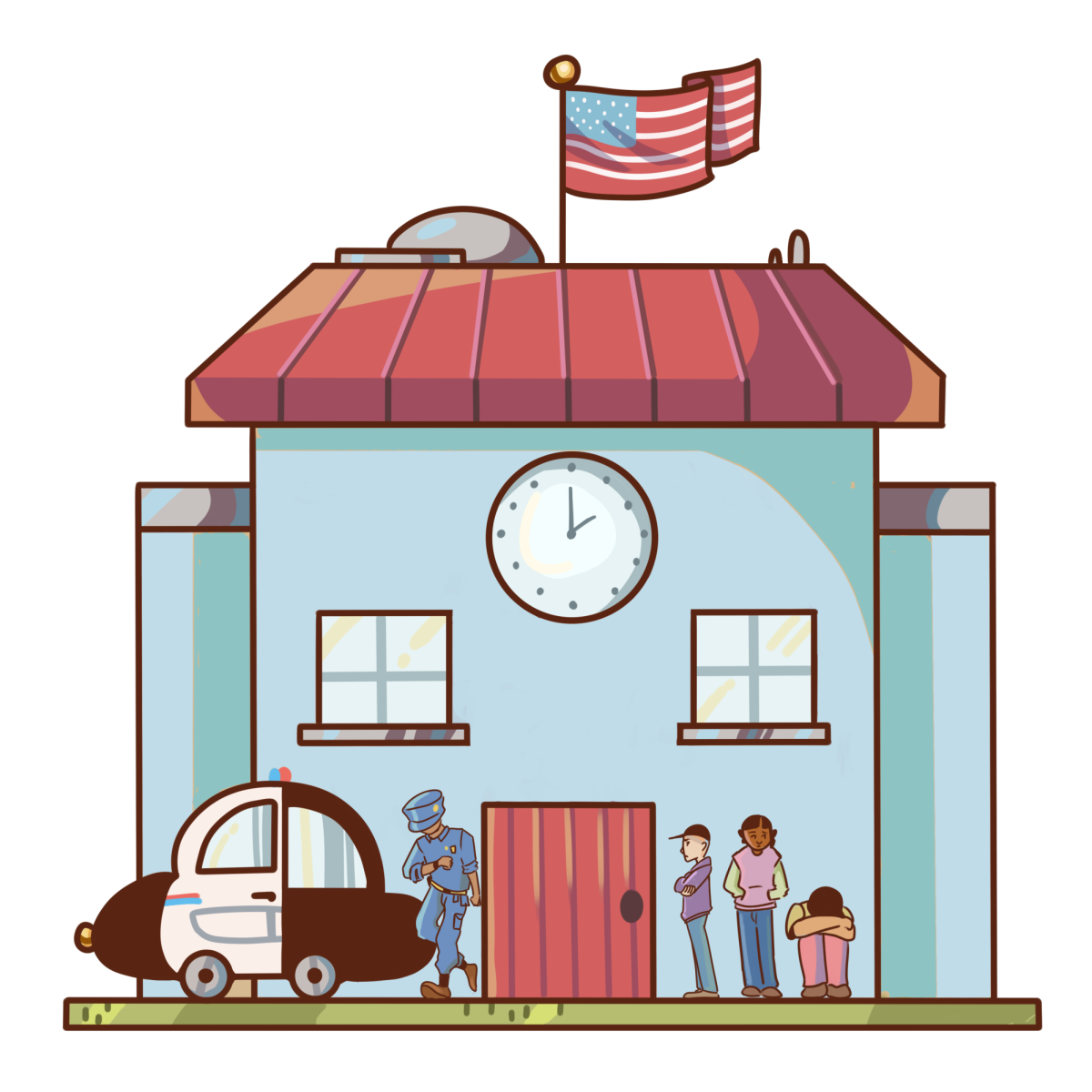As Upper School History Department Head Greg Gonzalez and history teacher Francine Werner discuss the age-old debate in the history community about teaching a Eurocentric world history, other teachers in the history office can’t help but chime in.
“Is this the ‘all-west versus the rest’ discussion?” asks one teacher passing by.
As the topic of region-specific courses offered at Harvard-Westlake comes up, another teacher adds that an East Asian Studies course used to be offered as well, but was removed from the curriculum due to lack of student participation.
“I’ve been having this discussion with colleagues for well over forty years,” Werner said. “But it’s not solvable. You make a choice.”
On the one hand, Gonzalez said that an understanding of European history is necessary as a foundation upon which students can build later in their academic careers.
“A lot of people think that if you teach modern European history, you’re teaching the glories of European culture and people wearing culottes and stockings,” Gonzalez said. “But it’s not that. It’s the European culture that’s been imprinted upon the world.”
History teacher Dror Yaron also said that European history is fundamental, given the global presence and impact of European nations throughout modern history.
“History in general, on the generic level, was dominated by developments that emanated from Europe,” Yaron said. “We’re talking about social, cultural, political, economic, technological and military developments. This is not to say that we need to shy away from studying the histories of Asia and its different regions or the African continent but from a purely practical matter, the history from 1500 on, the focal point of that history is issues that have evolved from Europe that have impacted the rest of the world.”
This debate extends beyond the walls of the history department in Seaver. In Black Leadership Awareness and Culture Club meetings, the history curriculum is a hot topic as well. In recent meetings with administrators to discuss how the school can better address diversity, changes to the history curriculum have been proposed and met with a receptive administration.
Yaron, who teaches Middle East Studies, one of the few region-specific courses offered at Harvard-Westlake, said that the time period studied in ninth grade history courses has some room for a focus outside of Europe.
“In ninth grade, there is a very robust Islamic civilization that from the ninth to tenth century up until the twelfth century is superior to the west,” Yaron said. “There is a robust Chinese civilization as well. Islam had spread far and wide, all the way to Southeast Asia, all the way to East Africa and parts of South, West and North Africa as well, and at the core in Southwest Asia. That needs to be emphasized much more in ninth grade.”
Still, he said that before studying specific regions, students’ historical educations should focus on Europe because many movements in the modern Middle East, for example, were reactions to developments in Europe. He said he believes some suggestions for curriculum change to be politically or emotionally motivated.
“This is about aggrieved groups in America who embrace identity politics and who want to reignite a certain controversy or contention so they can empower themselves in the process by re-appropriating the past,” Yaron said. “It’s going to backfire on them when they go into the nitty gritty, into the concrete elements of ‘what exactly do you want to gain from studying history?’ because feel-good history is not history at all.”
Werner acknowledged the criticism and assumption of moral judgment that often comes along with a Eurocentric history curriculum, particularly in terms of prioritization of certain countries over others. Her response to this criticism relates to the fundamental goal of the history department, which is to provide students with skills that allow them to think critically and continue their history studies after graduation.
“This is just the beginning – a foundation of skills, an understanding of cause and effect, why groups of people behave a certain way, what causes groups of people to rebel,” Werner said. “Those lessons get applied in various parts of the world.”
Similarly, Gonzalez said he recognizes the need to consider criticism of the traditional history curriculum.
“The department focuses on narrative histories, which I know are easily attacked,” Gonzalez said. “In a narrative history, it’s important to confront the bias, which we do every single day.”
Biases against minority groups, he said, are found throughout history. The history department aims to bring these biases to the forefront of class discussions by relating historical prejudices to current events.
“We are historians, so we’re constantly examining our own sources and biases and our own methods of teaching,” Gonzalez said. “Even within these traditional courses, we change our sources every year [and] our topics.”
Teachers try to offer a balanced perspective in everyday lectures and readings, Gonzalez said. For example, Advanced Placement United States History students read both consensus and revisionist accounts of the history they read in their textbooks and discuss the different viewpoints in class.
“It’s a dangerous falsity to suggest that in eleventh grade the other groups in eleventh grade besides the dead white man are not getting a voice,” Yaron said. “On the contrary, Harvard-Westlake has done a very good job in the texts and readings that they have used and even the teachers’ motivations here have been to give voice to those other groups.”
Furthermore, Werner said, the Harvard-Westlake U.S. history curriculum is already liberal in comparison to other parts of the country.
“What we may think is traditional is under attack, not from the point of view you’re thinking of but from the point of view that we spend too much time on non-white groups, too much time on Marcus Garvey and Frederick Douglass, and not enough time on Thomas Edison and the Wright brothers,” she said. “This has come under massive attack in many parts of the country to the point where Oklahoma has outlawed AP U.S. History in public schools.”
This debate, along with many others, is ongoing. But underneath all the discussion lies a department dedicated to imparting their passion for history upon students and to encouraging them to look at the present critically through the lens of the past.
“If anything, we want our students to question authority,” Gonzalez said. “We want our students to ask, ‘why don’t we have this course?’ These are all good questions. We want our students to be aggressively skeptical and understand the complex nature of the world by rigorous examination of the past.”





































